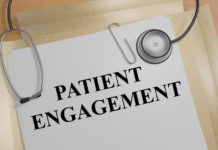ABPI Digital Update: Insider Reactions A conversation with Robert Anderson, Head of Digital Communications, Weber Shandwick UK (see bio), about the results of an informal survey of pharma clients regarding ABPI’s long-awaited digital guidance update.
Aired LIVE on:
Friday, August 11, 2011 Click the play button in the widget above to listen to the podcast.
If you don’t have Javascript running, go to this Pharma Marketing Talk Segment Page to listen to the audio podcast. This show and ALL Pharma Marketing Talk shows are available as podcasts via PMT on iTunes (FREE!).
Background  The pharmaceutical industry has often said that the lack of regulations or guidance on how it should monitor and report adverse events (AEs) on pharma owned or speonsored social media sites impedes the industry’s ability to open up two-way communications on Facebook, Twitter, and online discussion boards.
The pharmaceutical industry has often said that the lack of regulations or guidance on how it should monitor and report adverse events (AEs) on pharma owned or speonsored social media sites impedes the industry’s ability to open up two-way communications on Facebook, Twitter, and online discussion boards.
In June, 2011, the ABPI (Association of the British Pharmaceutical Industry) Pharmacovigilance Expert Network (PEN) published GUIDANCE NOTES ON THE MANAGEMENT OF ADVERSE EVENTS AND PRODUCT COMPLAINTS FROM PHARMACEUTICAL COMPANY SPONSORED WEBSITES.
ABPI says that details of ALL AEs “should be collected and documented, regardless of:
- Seriousness of the event
- Whether there is an identifiable reporter
- Whether any adverse events are listed in the product’s Summary of Product Characteristics
- Whether a definite causal relationship or link to the product has been stated
- Whether the stakeholder or patient has already reported the event to the competent authority or says they have reported it to the company”
Regarding the identity of the reporter of an AE, ABPI says an e-mail address would be considered acceptable and even a screen name would be acceptable IF the screen name allowed for contact to be made. ABPI recommends companies implement “a formal site registration process” that can be utilised to obtain information enabling regulated companies to “identify and contact users in order to validate and follow-up on safety information.” During registration, users should give consent for the company to follow-up with a user should they report AEs, says ABPI. “It should also be made clear that personal information may be processed on internal company databases and sent to regulators.”
Pharma marketers in the UK still feel their hands are tied when it comes to digital communications, despite recently updated guidance from the ABPI designed to clarify best practices. Two thirds of the front-line staff Weber Shandwick spoke to in an informal survey said the ABPI’s guidance has not clarified the dos and don’ts of social media in consumer-facing communications activities. What’s more, their feedback was that the ABPI and MHRA are failing to keep pace with developments in the digital space — and that this could ultimately put patients at risk from misinformation that goes unchallenged.
Click Here for Additional Resources
Questions/Topics Discussed- Help us understand the roles of various pharma regulatory authorities in the UK including the ABPI, the Prescription Medicines Code of Practice Authority (PMCPA), and the Medicines and Healthcare products Regulatory Agency (MHRA).
- Why did you do your survey and who did you survey?
- Tell us the major findings of your survey.
Guest Bio
 Robert Anderson heads the UK Digital Communications team at Weber Shandwick in London, counselling clients and colleagues in all things digital.
Robert Anderson heads the UK Digital Communications team at Weber Shandwick in London, counselling clients and colleagues in all things digital.
Robert worked for a few years as a TV journalist before helping develop internet strategy at Sky and then crossing to the “dark side.”
Email him at RAnderson@webershandwick.com. He blogs at www.dontgomad.com and is on Twitter @dontgomad
Additional Resources









![6 Digital Tools at the Center of Healthcare Digitalization [INFOGRAPHIC]](http://ec2-54-175-84-28.compute-1.amazonaws.com/pharma-mkting.com/wp-content/uploads/2021/04/6DigitalTools_600px-100x70.jpg)




